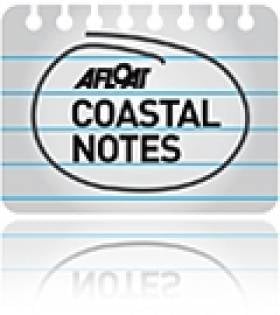Displaying items by tag: Boat Trips
New Harbour Charges Could End Trips to See Fungie
#IRISH HARBOURS - "Draconian" new charges for harbour users could bring an end to boat trips to see Dingle's most famous resident, according to The Irish Times.
Fungie the dolphin has been a mainstay of Dingle harbour for almost 30 years, but boat trips to visit him could cease to operate "with immediate effect" if charges of up to €9,000 are imposed "in advance" of the season.
Currently operators in the Dingle Boatmen's Association pay around €2,500 to use the harbour at the end of each season.
Association chairman Jimmy Flannery called on anyone working in tourism in Ireland to make submissions to the public consultation before the deadline next Friday 20 April.
As previously reported on Afloat.ie, yacht owners are also up in arms over the new charges proposed by Marine Minister Simon Coveney that could see their rates hiked by an incredible 800 per cent.
And the news comes not long after fellow Kerry harbour users protested proposed new bylaws to regulate their activities and impose new charges.
Dublin Bay Prawn Festival Heads for Howth
A Sampi trail will be held in various pubs and hotels on the Friday night starting at 7pm, no booking is required. On the Saturday afternoon there is a Prawn Shelling Competition starting at 2.30pm.
Howth Yacht Club will open its doors to public viewing on the Saturday and the Howth Coastguard Station (West Pier) will also be open on that day too in addition to the Sunday. The West Pier is also to host a Fishing Techniques demonstration on Sunday at 3pm.
On the mornings of Saturday and Sunday a self-guided walk from Howth to up to Howth Hill taking up to two hours will meet at The Courthouse at 10am. The walk which is to be pre-booked and registered online is also suitable for families. The route is weather dependant and will follow one of the four looped walks.
The Irish Seal Sactuary will be offering a seal watching tour and harbour walks guided by volunteers on the Saturday and Sunday. An information stand will be made available for more details click www.irishsealsanctuary.ie
Throughout the weekend there will be all day events which include island boat / eco tour trips and the National Transport Musuem, noting that these activities will be charged. It should be noted that festival programme is provisional and is subject to change.
For more information about the full festival programme logon HERE and by contacting Howth Tourist Office on 01 8396955 and by email: [email protected]































































